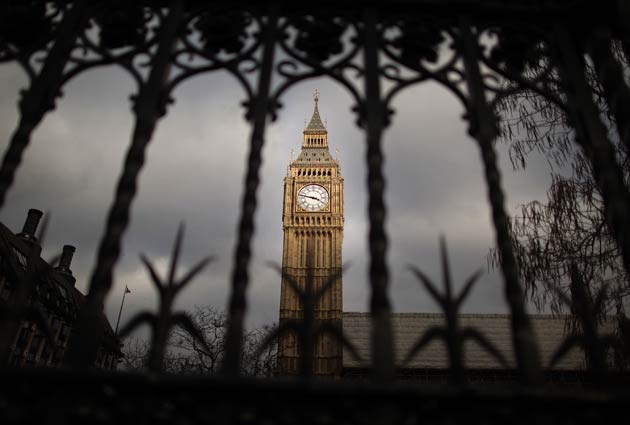Commons criticised on bar bills delay

Your support helps us to tell the story
From reproductive rights to climate change to Big Tech, The Independent is on the ground when the story is developing. Whether it's investigating the financials of Elon Musk's pro-Trump PAC or producing our latest documentary, 'The A Word', which shines a light on the American women fighting for reproductive rights, we know how important it is to parse out the facts from the messaging.
At such a critical moment in US history, we need reporters on the ground. Your donation allows us to keep sending journalists to speak to both sides of the story.
The Independent is trusted by Americans across the entire political spectrum. And unlike many other quality news outlets, we choose not to lock Americans out of our reporting and analysis with paywalls. We believe quality journalism should be available to everyone, paid for by those who can afford it.
Your support makes all the difference.The House of Commons has been criticised by the information watchdog after delaying the release of embarrassing details about MPs' unpaid bar and restaurant bills until after the general election.
Information Commissioner Christopher Graham said it had been "completely unacceptable" for the Commons to take more than seven months to disclose the food and drink tabs of 74 MPs.
Most of the bills ran to hundreds of pounds - some were worth thousands - and all were more than three months overdue.
Under the Freedom of Information Act, the debts should have been disclosed within 20 working days of being requested by the Press Association last September.
Instead, they were kept under wraps until May 19 after the Commons refused to release the information in the run-up to the election. Many of the MPs concerned had by then left the House.
That was despite repeated demands and deadlines from the Commissioner to disclose the information before then.
The Commons missed three separate deadlines agreed with the Commissioner in February, March and April.
In April, the Commons said it could not deal with the request until after the election because it ceased to be a public authority while Parliament was in recess.
In a Decision Notice issued this week, the Information Commissioner's Office (ICO) said there was no reason why the Commons should not have responded within 20 working days - or last October - as the Freedom of Information Act requires.
The Commissioner found the Commons in breach of the Act for failing to either confirm it had the information, or provide it, within 20 working days.
"The Commissioner believes that the delay of over seven months (even factoring in the period of Parliamentary dissolution) was completely unacceptable in this case," the ICO said.
The Commons argued that, under the Data Protection Act, it was required to consult the MPs about the information it intended to release about them.
But the ICO said: "The Commissioner is not satisfied that the consultation process should have taken over four months to complete.
"Indeed, he does not believe that it is acceptable that it should have taken over 20 working days to have issued the response along with the information that was not exempt."
The Commons also breached the Freedom of Information Act in failing to state for more than six months that it was claiming an exemption in order to refuse to name MPs whose debts had been outstanding less than 90 days.
At least 200 MPs are thought to have had their names withheld by the Commons because they fall into this category. Last summer they were collectively liable for more than £140,000.
The Information Commissioner backed the Commons' decision to protect those MPs, saying that they were operating within "the policy" of the Commons catering accounts system and had a right to expect they would therefore be dealt with internally.
He said that the public interest in knowing the full extent of MPs' debts to the taxpayer-funded Commons was outweighed by the "unnecessary and unjustified distress" that would likely be caused to the MPs.
"He believes that this is so because the figures even with a careful explanation could be liable to be misunderstood by the public and possibly misrepresented by the media," the ICO said in its Decision Notice.
Apparently referring to the public outcry after the MPs' expenses scandal, it added: "In coming to this decision, he has considered the climate at the date of the request."
Join our commenting forum
Join thought-provoking conversations, follow other Independent readers and see their replies
Comments